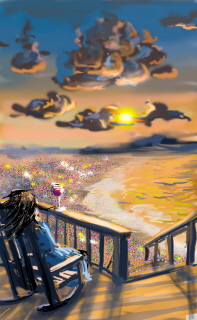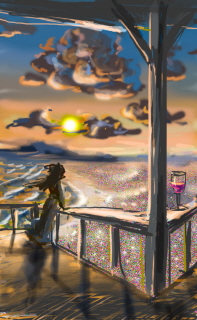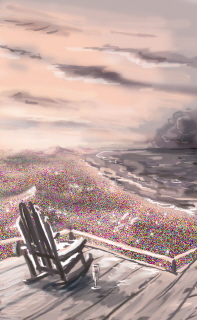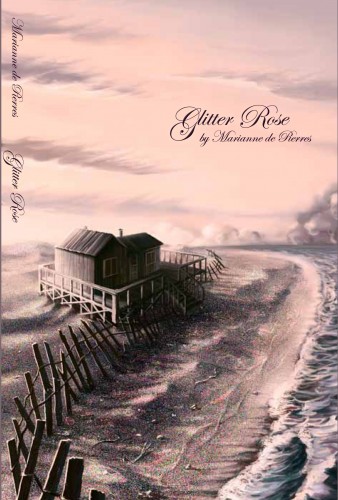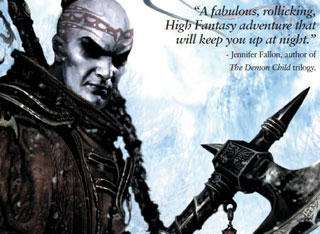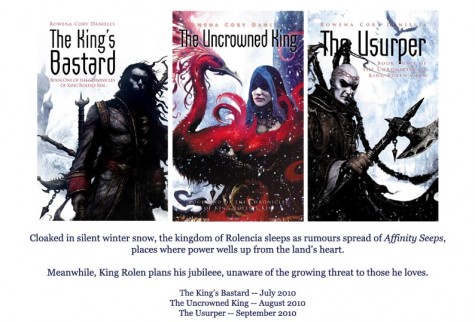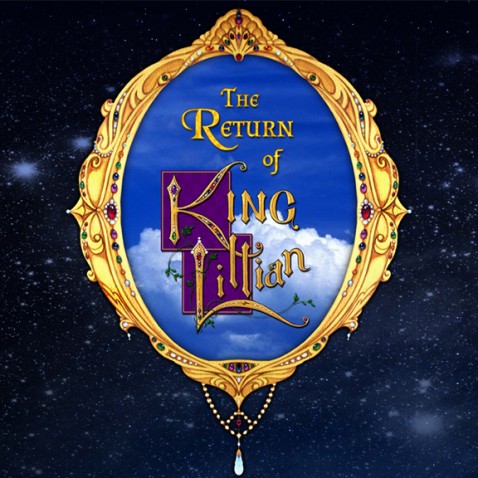 1. How would you describe The Return of King Lillian in a couple of sentences?
1. How would you describe The Return of King Lillian in a couple of sentences?
“The Return of King Lillian” is a mythic journey, an allegorical fantasy, a tale of self-discovery. Most of the story is told by Lillian, in a sort of spoken word storyteller fashion, so I have also recorded the story and it’s available as an AudioBook, as well as an eBook. (on www.kinglillian.com, soon to be on Amazon and Audible.)
2. This project totally consumed you. What turns a successful, talented actor and singer songwriter into an obsessed novelist/writer?
Ah, now there’s an epic question! Forgive me, Marianne, but I’m afraid there’s an epic answer forthcoming…
For about 25 years now, I’ve had very sporadic dreams about the world of King Lillian. The first dream was a flash of Lillian in scarlet cape and Musketeer hat riding horseback uphill on a mountain trail; it was enthralling! The dream images were almost all literally flashes, single moments so sparkling with light and color, so enchanting — I couldn’t possibly forget them.
Eventually, I began to try to capture this world, just immerse myself in it — play with characters, dialogue, trying to find the form it most organically wanted to take — knowing all the while that it would have its own style, its own sound that I would recognize once I hit on it. But every go round, I’d dive in again, and each time, I’d come up feeling failed and frustrated and inadequate, because it felt like the story had chosen such a completely unqualified person for the job.
On the other hand, every time I returned to the idea after being gone a while, I’d realize that I somehow now knew much more  than I did the time before, that in those interims the thing had taken root in my subconscious and had been growing while I was looking the other way. It felt sometimes like I was on some sort of archaeological dig in my psyche, carefully brush-brush-brushing away, with this situation or that character revealing itself more dimensionally each time.
than I did the time before, that in those interims the thing had taken root in my subconscious and had been growing while I was looking the other way. It felt sometimes like I was on some sort of archaeological dig in my psyche, carefully brush-brush-brushing away, with this situation or that character revealing itself more dimensionally each time.
Fast forward a few decades, and I felt it was time to once again turn to this creature growing inside me, and either bring the thing into the world already or be done with it forever. So I decided to read every single everything I’d ever written about the tale, the world, the characters, every version, every note, every scene — there was a lot to read, believe me.
There I was, just so completely exhausted with boredom and disappointment, lethargically trudging through it all, and I couldn’t wait to be finished with it — when I picked up a file of about 16 pages that was written in diary form. I’d aimlessly played at writing Lillian’s diary years before because of one of those flash-dreams I’d had. Well, I was so sleepy, I read those pages aloud simply to keep myself awake.
And the second I started reading aloud — “Ding!” — I was instantly wide, wide awake. It felt alive and easy and I was having so much fun! And that’s how the form, at last, got itself found. I started writing on November 1, 2011, at the start of national novel writing month. And we just pressed the launch button on the website November 1, 2012. Yahoo!
3. Who do you see as your audience for King Lillian?
Well, let’s see now: People who love purple, animals, art, fairies, elves, forests, libraries, journey tales, love stories, metaphysical fantasy… People who color outside the lines. And, of course, I’m so excited to be surprised by just who might resonate with it.
4. You voiced the audio version yourself. Tell us about that experience.
It was heaven, with a few shots of hell, too, of course — particularly with respect to so desperately not wanting to fail the story. But mostly, it was a deliciously fun and freeing and profoundly satisfying journey.
5. Has this kind of project inspired you to write more?
Though I do have an idea or two brewing for a bit of additional material about the world of King Lillian, in general, I think of myself as a sort of multi-media artist-type, who uses this or that artistic expression to express this or that work of art that wants expressing. As far as the act of writing goes, honestly, I don’t know how you real authors do it, Marianne! And by real authors, I mean writers like youself who have book after book after book in them, and are molecularly compelled to write! For one thing there’s that sitting forever and ever business, ‘til my legs go numb and my back hurts and I’m barely able to straighten up afterwards, as I sit hunched over like a big comma, no matter how many times I remind myself not to.
For another thing, there’s the light and the shadow of what is apparently my process that can drive me nuts. I call it “The Walk Around The Moon” because it takes me from light to shadow to light: “Oh, this is fantastic, I’m having so much fun!” to “Oh, this is agony, quick, somebody, call a professional! What the hell was I thinking?!” to “Oh my God, I love this, I love this, thank you! Yes!” Maddening, but true.
That being said, I feel that the writing and the enacting of this story has healed something at the core of me, and I feel very grateful that it came knocking at the door of my subconscious, lo, those many years ago.
6. What would you like to say to potential readers and listeners of King Lillian?
Oh, I’d like to thank them with all my heart for being curious enough to spend some their hard-earned time and money on this offering of mine. I deeply, dearly hope it brings them joy.
Suzie’s wiki








